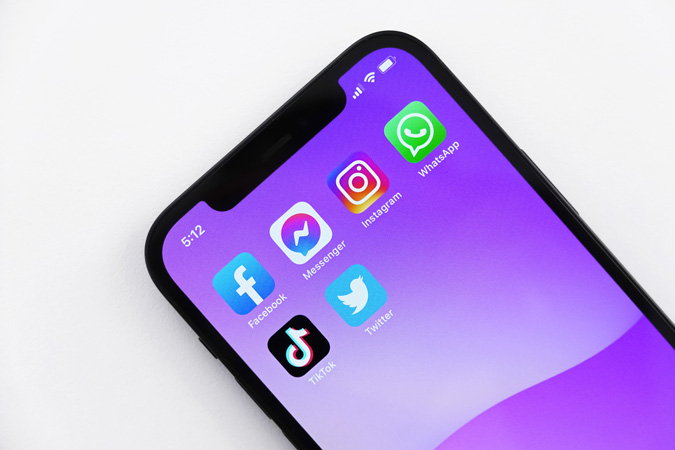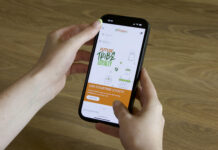Last year was a busy and often chaotic one on the social media streets – starting with the appalling attack on the United States Capitol, punctuated in the middle with the July unrest in South Africa, and ending with the death of our beloved Archbishop Emeritus Desmond Tutu the day after Christmas. And, of course, the Covid-19 pandemic and COP-21 climate conference provided a constant, buzzing backdrop to many online conversations.
But what stood out? What were the blunders and the rays of light? And what did we learn from all the noise and chatter on social media? Here are a few observations.
1. Trolls will keep schtum if the incentive is attractive enough
Several South African brands came up with incentives for their customers to get vaccinated against Covid-19 – from the government dangling supermarket vouchers to Wimpy offering free coffee.
Not surprisingly, the troll army descended in full force, spewing anti-vax propaganda to counter these messages. But some brands had the last laugh – simply by offering an incentive that was attractive enough to make the haters (temporarily) swallow their bile. Witness Vodacom, which offered customers 1GB of data and 60 voice minutes if they posted proof of vaccination on social media. The trolls beat a hasty retreat – or perhaps it was just slick community management on Vodacom’s part.
2. Humour is king – even (and especially) in dark times
What went viral on social media? Funny stuff. Stuff that didn’t take itself at all seriously. Silly TikTok videos. My Kreepy Teacher (Retroviral’s hilarious parody of Oscar-winning documentary My Octopus Teacher). Videos by comedians such as Trevor Noah, SuzelleDIY and Loyiso Madinga. Lasizwe Dambuza’s hilarious spoof videos that have catapulted him to mega-influencer status – at the tender age of 23.
For Pete’s sake, David Scott (aka The Kiffness) took a clip of a yowling cat and turned it into the Alugalug Cat song – and it broke the internet. Who says we have to take ourselves seriously in a pandemic? The content we loved the most in 2021 proved that laughter truly is the best medicine for all ills.
3. Doomscrolling is counterproductive
What’s (almost) worse than contracting Covid-19? Sinking into a deep depression by constantly doomscrolling to keep up to speed with the horror stories associated with the pandemic. After a grim session of flicking through these gloom-laden feeds, the apocalypse seems like a merciful release.
Staying in the loop and being stuck in a constant loop of misery are completely different things. The more negative news you gobble up, the more you crave and the more you compulsively scroll, bumping up your levels of the stress hormones cortisol and adrenaline. Be selective and spartan with the bad news you consume on social media – less is definitely more when it comes to your mental health.
4. Omission is a form of erasure
What’s worse than not being noticed? Being purposefully cropped out. Cyberbullying is a horrible, horrible thing (gymnast Simone Biles and tennis player Naomi Osaka are just two high-profile examples of high-profile women cyberbullied in 2021), but more subtle and insidious forms of hatred are also raising their ugly heads online.
Take the instance of Ugandan climate activist Vanessa Nakate being cut out of an Associated Press photograph taken with fellow activists – all white – who had addressed a climate change conference. “It was like I wasn’t even there,” she mused. Have editors not learned by now that denying people the chance at representation is a form of censorship?
At least Dove (which sparked outrage a few years ago with its ad showing a black woman “turning herself white” by using Dove body wash) is starting to redeem itself with its body-positive and anti-bullying messaging such as its #ReverseSelfie campaign. More of the same, please.
5. Stats and data journalism are super-cool
In an online world filled with fake news and hidden agendas, who can we trust? That’s debatable, but it’s reassuring when we see the geeks taking to social media to enlighten us (very eruditely) with flow charts, graphs and other statistical representations plotted along y- and x-axes to chart the progression and ebbing of Covid-19.
The likes of Council for Scientific and Industrial Research senior researcher Ridhwaan Suliman and teacher Sugan Naidoo have helped us make sense of the madness around us – with no nonsense, no sensationalism and no ideological strings attached. They’ve also shown us that maths is cool – and that those hyperbolas and parabolas we learned about at school can actually be useful!
6. The road to hell is paved with good intentions
On International Women’s Day, when Burger King wanted to highlight the concerning fact that only 20% of professional chefs are women, the worst possible thing the brand could have tweeted to grab attention was, “Women belong in the kitchen”.
It didn’t matter one jot that the restaurant chain followed this with a thread about its new scholarship programme to empower more women employees to pursue culinary careers. A storm of protest erupted, with Twitterati not moved by the niceties of subtlety and irony. Burger King had to delete the tweet and apologise. Validating sexism, even when tongue in cheek, is not cool. In this case, it backfired on the brand horribly.
7. Spotify has personalised marketing all wrapped up
Music streaming service Spotify has struck a vein of genius with its annual #SpotifyWrapped campaign, which, every December, gives each user a personalised look at the types of music they streamed most during that year – specifically tailored for sharing on social media. In 2021, Spotify also cleverly tapped into the gamification element, with features like a shareable “Two Truths and a Lie” online music game customised according to your listening habits.
Even though it’s kind of creepy to realise how much we are “spied on” via algorithms, for the way in which Spotify helps to build its community through personalised and highly shareable content, the Wrapped feature is sheer marketing genius.




















































































